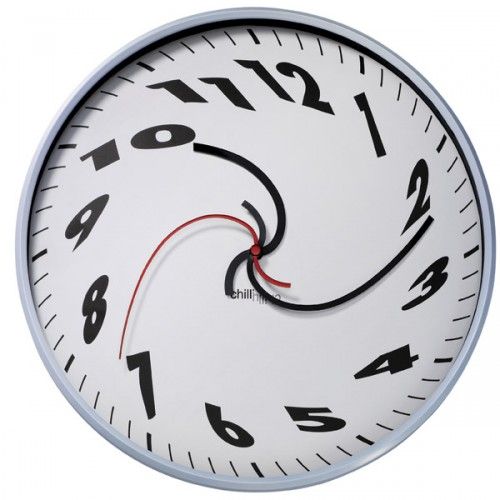Overnight tonight in the wee hours of March 9th (2am, to be precise), the United States will switch from Standard Time to Daylight Savings Time. Or at least most of the United States will: Hawaii and most of Arizona being the notable exceptions.
Besides making you late for things (if you forget to set your clocks ahead one hour), the loss of that hour of sleep in the spring can really wreak havoc on your body.
Most people have an opinion about the changes we make to our clocks for daylight savings time. Some hate it, some love it but few are ambivalent towards it. Our bodies are not particularly fond of it:
Heart attacks increase by 5 percent over the first week after clocks are pushed back an hour, spiking by 10 percent on that Tuesday, epidemiologists at the Karolinska Institute in Stockholm found. The time clock transition causes “a complex disruption of our body rhythms,” Janszky says, “so there are plausible reasons for sleep deprivation as a trigger for heart attack.”
Experts say it takes about 5 days for our bodies to get back into the proper rhythm. Melatonin can help mitigate the transition but people with Seasonal Affective Disorder (SAD) are are really hit hard by the change. The morning light is part of human circadian rhythms:
“In general, in terms of normal sleep patterns, daylight in the morning is better than light later in the day. Remember, our circadian rhythms were set eons ago to a rhythm that didn’t include daylight savings time, so the shift tends to throw people off a bit,” said Dr. Nicholas Rummo, director of the Center for Sleep Medicine at Northern Westchester Hospital in Mt. Kisco, N.Y.
For people with SAD, he noted, the shift in daylight may be even more difficult. “Normally, people with SAD start to feel better around this time of the year, and light earlier in the day is more helpful for them,” said Rummo.
So just as people with SAD, and people who are “human”, start feeling good about the additional daylight in the morning, whomp, it’s gone.
So why do we do this? The stated goal is to save energy: shifting the hour from the morning to the evening makes the evening lighter. These lighter evenings are supposed to reap energy savings by having to turn fewer lights on, for one thing. Of course, one cannot help but notice that moving that hour also makes the mornings darker but this is a law passed by Congress: it does not have to be logical.
The history of time zones makes a little more sense and is tied to the railroads. Before there was standardization of time zones “each railroad used its own standard time, usually based on the local time of its headquarters or most important terminus, and the railroad’s train schedules were published using its own time.” Yikes!
The Standard Time Act adopted on March 19, 1918 created our current time zones, and from the sounds of it, could have been called the Making Sense Out of Chaos Act at least for those who travelled or shipped goods by rail. Part of that law also established daylight savings time but it was repealed and left up to individual states.
That led to some interesting problems including this from Minnesota, land of a 10,000 times lakes:
In 1965, St. Paul decided to begin its Daylight Saving Time period early to conform to most of the nation, while Minneapolis felt it should follow Minnesota’s state law, which stipulated a later start date. After intense inter-city negotiations and quarreling, the cities could not agree, and so the one-hour time difference went into effect, bringing a period of great time turmoil to the cities and surrounding areas.
In 2006, Congress shifted the dates for Daylight Savings Time. I still have the little scrap of paper with the notes on that change on the workarea next to my monitor (Microsoft KB article 931836) which is more a testament to the chaos that is my workarea than my desire to have that bit of information readily available. Although it was a reminder of the nice vacation I was able to take in 2007 from the earnings generated from that “little” change. It impacted every computer I was responsible for and required manual changes on many of them as well as much time spent on the actual weekend of transition making sure that nothing went wrong that Microsoft had not anticipated (“who could have predicted that the backup program would not be able to acknowledge the new time?”).
Which makes me think that since the Republicans Congress is doing so much to add jobs to our economy by defunding NPR, gutting protections for women’s reproductive rights, killing Social Security, and repealing health insurance reform, maybe they should take time out from their busy three-day work week schedule to pass legislation that will be completely deficit neutral and will add jobs (or at least work): repeal the Daylight Savings Time laws and return us to standard time. I am sure they could whip up a law like that in less time than it would take to call an emergency session to defund something that saves $0.00009 trillion (or $0, no one is quite sure).
We will all feel better for it.
(A version of this first appeared on Views from North Central Blogistan)
22 comments